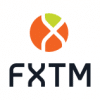
Traders may now choose from an extensive selection of forex trading courses due to the growing popularity of online currency trading. You may wonder, however, whether these courses are worthwhile and will genuinely help you become a better trader. We’ll examine both paid and free courses in the following sections.
Paid courses
You’ll find adverts for financial market training courses on nearly every trading site.
There’s a catch: these classes don’t come cheap. For a few days of training, the cost can be as high as several thousand dollars. As a trader, you must ask yourself: What do I hope to gain from this course? Do you want to learn the fundamentals of trading? Do you want to see the results of your strategy? What if they provided you with an all-inclusive financial strategy for success? etc.
Everyone must start learning from somewhere. However, there are times when we are forced to make do with what we can get our hands on because mentors are scarce.
Many forex trading courses on the market are a waste of resources and rely on tempting advertising material to appeal to the buyer’s greed and selfishness.
Tips for avoiding scam training programs:
You may avoid the dangers of paid training by following the tips below.
- If you want to learn the fundamentals of trading, don’t enroll in a training course that teaches you everything. In theory, this is a positive thing, but it isn’t always the case in fact. If the trainer has limited time to teach you, he will cover all aspects of trade but not go into detail. It doesn’t matter if the trainer is correct; you will still not remember what you learned.
- The complexity of Forex trading necessitates pricey training courses. Nonetheless, no matter how you look at it, charging more than $1,000 is outrageous. For learners, some of these costs are easily avoidable. For instance, signing up for seminars and courses without first assessing if the seminar or course is good for you can cost you a lot of money.
- People who are just getting started in the markets have a tendency to strive to get from zero to great performance in one leap. As a result, they’ll often pay anything to skip a step in their education. When it comes to the real world, that just isn’t the case at all. So take your time actually to learn and avoid being in a hurried learning environment.
- Look out for marketing lifestyles. Some “trainers” like to flaunt their opulent lifestyle in the hope of luring unsuspecting users to sign up. Be on the lookout for such misleading sites. These are tricks of the trade used to sway your thoughts toward greedy and uninformed decision-making.
- Insist on knowing your trainer’s qualifications. Good training courses are largely dependent on the quality of the trainers who deliver them. How long has he worked in the financial markets? Is he a successful trader? What is the point of his training sessions?
Don’t buy a course from a vendor that has never traded or has no track record of getting the best out of Forex instruction. The only traders that succeed in Forex trading are those who put in the time and effort to learn the ropes and put in the hours.
- Inquire about the type of support offered. Additional resources and assistance are provided for the best trading courses, such as live chat rooms and forums, continuing webinars, access to trading models and mentors, etc.
Free training courses
The fundamentals of forex trading can be learned for free on the internet or even from your local library. If you’re willing to put in the time and effort, you can learn nearly anything you need at no monetary cost.
For starters, many of the books available at your local bookstore are of fantastic value, and you may learn from traders who have actually done the work rather than just talking about it online.
Reading books is one of the cheapest ways to learn new things. Make the most of these resources before deciding to spend a lot of money on courses, seminars, and other educational opportunities. Learn about markets and strategies before diving into specifics of your trading system or methodology.
Many free Forex courses can be accessed via YouTube videos, where the learning experience can be a bit more enhanced than books or other reading material. Some tutors often respond to questions raised by their subscribers, but the responses are often selective because, after all, the service is free!
The downside to free training courses is their limited resources. Learners miss out on the teacher-student experience because there are no tutors to turn to.
Pros and cons of paid courses
Pros
- You get support from your tutors in case you need help.
- Paid training courses are often offered by accredited institutions; therefore, you can verify their authenticity.
- In some cases, you will receive a certificate serving as proof of your training. This is great for your professional development.
- You derive the benefits of one-on-one tutoring.
- You follow professionally-developed coursework, ensuring that you gain the appropriate trading skills in a logical manner, and you do not rush to advanced levels before passing through basic levels.
- Learners are often given tests to assess their understanding of coursework.
Cons
- Some of them can be expensive.
- In some instances, you may need to pay multiple times to retake lessons you did not grasp properly.
- Hidden costs: Sometimes, you may incur extra costs to buy more learning material if you encounter difficulties in understanding some concepts.
- The internet is awash with many scam Forex training courses.
Pros and cons of free courses
Pros
- You get lots of training material for free.
- Freedom to learn with greater flexibility; that is, you learn what you want when you want.
- There are many sites offering free forex education materials. Therefore, you can always compare their quality and get the best out of them.
Cons
- Most of them do not offer proof of expertise or experience in Forex trading.
- Learners do not get a qualification certificate, hence no proof of training.
- Most free course tutors do not offer support.
- They typically have no one-on-one tutoring, hence no way of asking questions and getting answers.
In summary
An in-depth evaluation of each course’s offerings and how relevant they are to your unique situation is essential before making a decision on the best online trading course for you.
Forex trading is a high-risk endeavor, and it’s crucial to remember that before you enter the market, you’ll need to put in a lot of time and effort, whether it is free or paid. A course promising overnight achievement is almost always a scam. If you’re looking for a shortcut to financial freedom, steer clear of any training providers who promise it in one fell swoop.







Leave a Reply